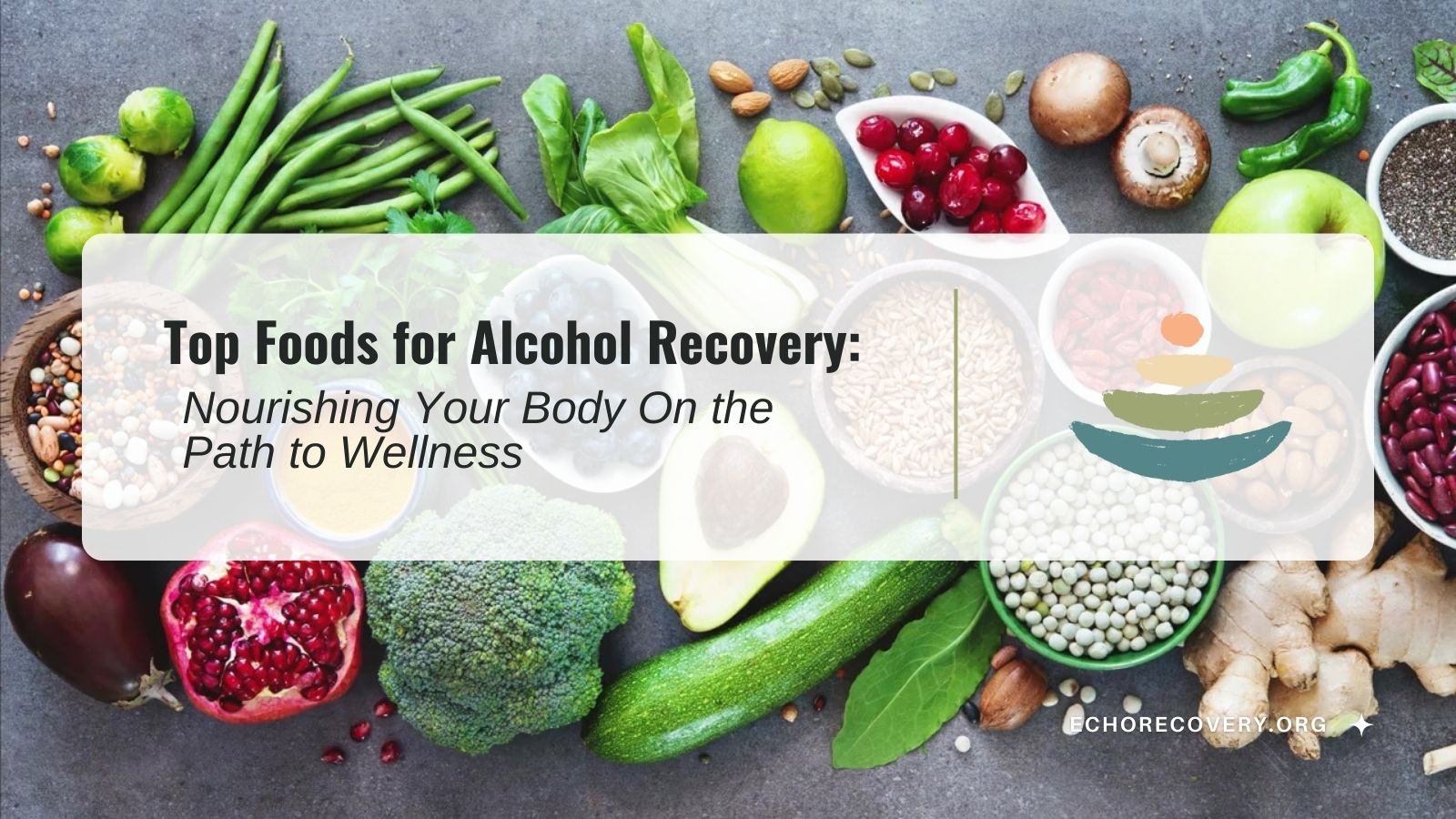Taking the first step and admitting you need help addressing your alcohol use can be the most difficult, most critical decision you’ll ever make. It’s common to feel defeated in the face of the many physical and mental health issues caused by excessive alcohol use, but it’s not too late to forge a path forward. I made this difficult decision myself many years ago, and today, I continue to encourage others to move away from alcohol use and toward healthier choices.
At ECHO Recovery, I’ve found great value in the education and recovery support we provide for those who are struggling with substance use disorder (SUD), including alcohol use disorder (AUD). While I know how challenging it can be to face the ravages alcohol has wreaked on your mind and body – and how tempting it can seem to turn back to alcohol to manage these daily struggles – there are far better answers.
With careful planning and attention to your diet and lifestyle, you can address your physical needs, stay in recovery, and go on to live a meaningful life.
Today, I’d like to discuss a few key foods that aid in alcohol recovery that you can begin eating to improve your recovery journey.
What Does Alcohol Do to the Body?

To determine which foods are best for alcohol recovery – and understand why they’re so helpful – it’s critical to learn more about what alcohol really does to the body.
Alcohol can not only alter your brain chemistry, but it can negatively affect your nutrition as well. In fact, alcohol is known to prevent the body from absorbing and using the nutrients gained from foods. Without these key nutrients, you not only risk succumbing to various physical ailments, but you can also struggle to think clearly and act quickly. Worse, even if you begin an exercise regimen, this phenomenon can limit your muscle growth, making exercising more complex and less effective.
Certain health consequences become more likely with continued alcohol use, and people who consume alcohol excessively or daily are most susceptible to the following conditions.
Liver Damage
Your liver is responsible for filtering waste from your body and storing sugar that your body uses as energy. If you drink heavily, your liver will begin to struggle to keep functioning as normal. Not only can you suffer from excruciating pain, but you also risk experiencing other symptoms of liver damage, like fever, nausea, intestinal bleeding, and even cancer.
Cirrhosis
Cirrhosis is an advanced form of liver damage commonly caused by excessive alcohol consumption over a long period of time, leading to healthy liver cells being replaced by scar tissue. With years of constant damage and scarring, the liver becomes swollen, stiff, and incredibly weak, meaning it can no longer carry out its important functions. Cirrhosis is unfortunately irreversible, though you can slow its progress by ceasing alcohol consumption and eating an anti-inflammatory diet.
Inflammation
Inflammation primarily occurs when your body attempts to defend itself from diseases, but alcohol use can also be a source of inflammation. The more alcohol you consume, the more regularly your body is in a state of inflammation, which can cause issues with the liver, brain, intestines, and more. Inflammation can be especially impactful in the intestines, as the harmful components of alcohol can leak from the organ, which becomes weaker as drinking continues. Worse, the immune system will eventually struggle to fight off the resulting infections.
Nutritional Deficiencies
Because alcohol can slow down or even stop the absorption of nutrients, you can expect to deal with nutritional deficiencies if you continue to drink heavily. For example, you may lack adequate levels of vitamin A in your system, which can lead to vision impairment and dry skin. Some people may also drink excessively while eating very little, which leads to multiple nutrient deficiencies that are tough to correct.
Top Five Foods for Recovering Alcoholics
Nutrition for alcohol recovery is essential to healing both physically and mentally. Of course, the first step is making the decision to seek help, at which time you will go through a detox process to rid your system of harmful substances. However, detox often doesn’t fully address the foods and nutrients you’ll need on your recovery journey. Often, too, you’ll receive the best in nutrition while in a treatment program, but I’ve seen many people return from treatment and then struggle to maintain a healthy diet suitable for alcohol recovery.
While I am not a nutritionist myself, there are certain foods research has demonstrated to effectively support the alcohol recovery process through all stages of recovery. These top five foods that aid in alcohol recovery are foods to prioritize as you return to physical and mental wellness.
1. Cruciferous Vegetables
Cruciferous vegetables include leafy greens such as spinach, broccoli, and kale. These vegetables are full of nutrients commonly depleted during heavy alcohol use, such as potassium, vitamin A, and calcium. These veggies also contain a lot of water, which can help keep you from becoming dehydrated. Finally, the substantial amounts of fiber in cruciferous vegetables can keep you regular, improve your gut health, and help you regulate your blood sugar levels.
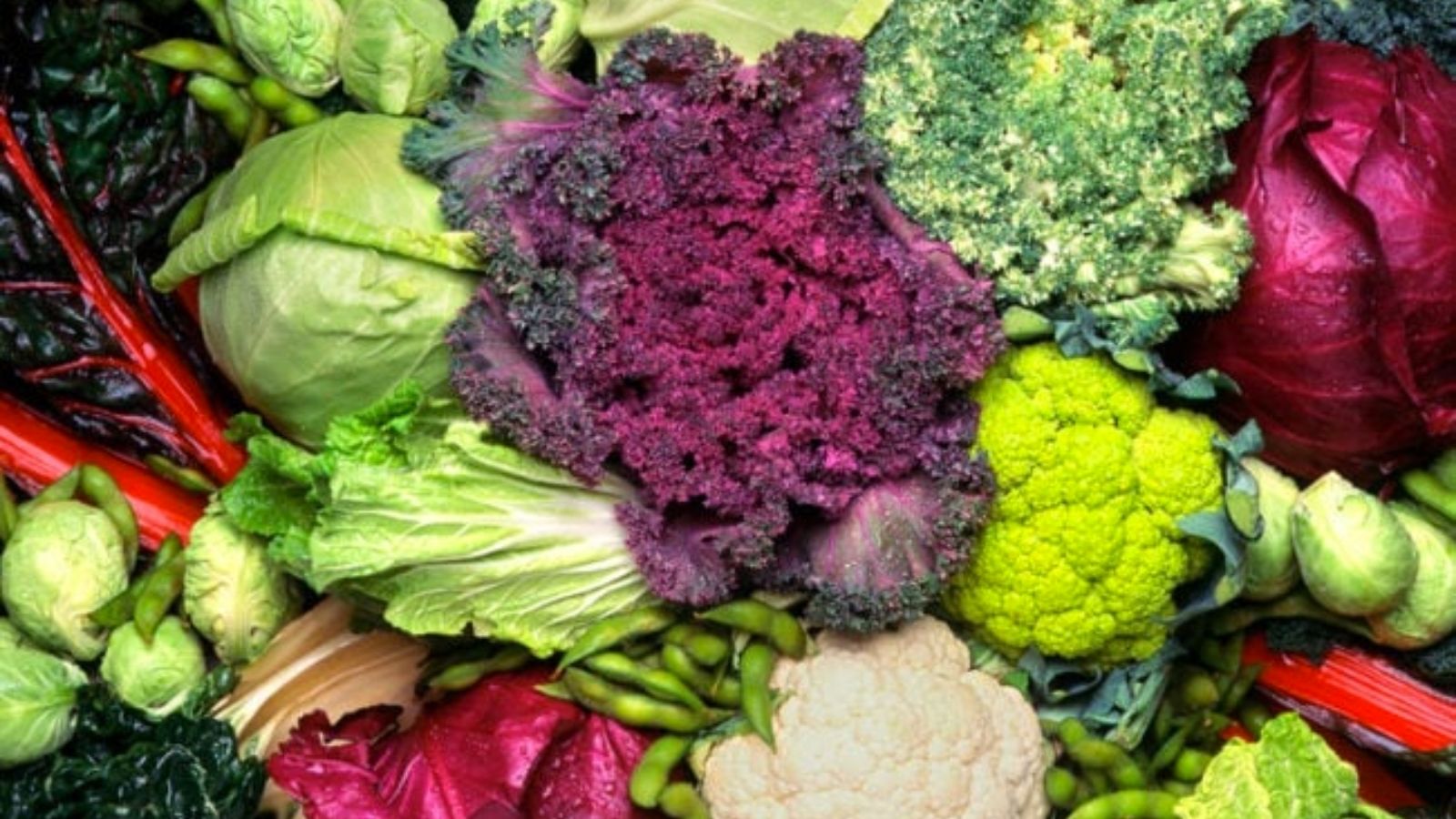
2. Shellfish
Shellfish is known for including a fair amount of zinc, omega-3 fatty acids, and iron, all minerals and nutrients that aren’t adequately absorbed by the body during heavy alcohol use. For example, without zinc, you can experience appetite loss, rough skin, and mental lethargy, and iron is responsible for helping red blood cells carry oxygen to and from your body’s organs. Shellfish can help you replenish these minerals, helping your body return to normal functioning.

3. Sunflower Seeds and Nutritional Yeast
Sunflower seeds are a source of protein that can not only boost your energy levels in a pinch but can also raise your dopamine, or “feel-good” hormone levels. Rather than turning to alcohol to get through a tough moment, chew some sunflower seeds instead – they contain the nutrients needed to help you feel good without harming your body and can be an excellent way to cope with the situation at hand.
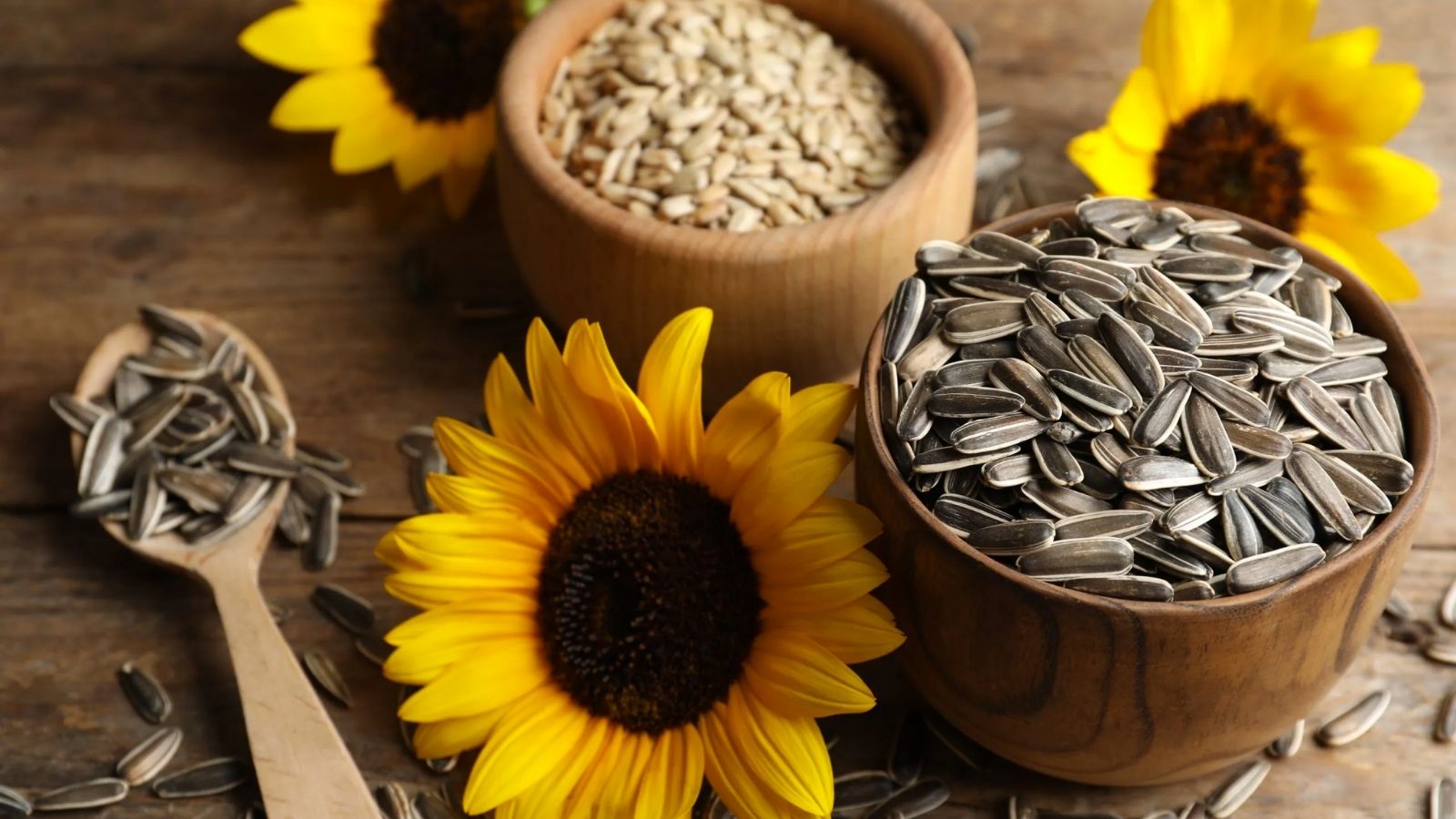
Similarly, nutritional yeast contains many B vitamins that your body is likely missing as a result of alcohol use. Incorporating nutritional yeast into your diet is easy, as it makes a great savory topping or a thickener in soups, smoothies, and sauces. Nutritional yeast can replenish B vitamins and keep your body going without much fuss.
4. Fish and Omega-3 Fatty Acids
Fish contains many healthy nutrients, prime among them omega-3 fatty acids and vitamin D. Both are crucial for keeping you feeling healthy and helping you recover from damage and inflammation. Omega-3 fatty acids specifically are among the best nutrients for fighting inflammation caused by alcohol. Look for meaty, fatty fish like salmon, which contain high levels of omega-3s and are also packed with a fair amount of protein.
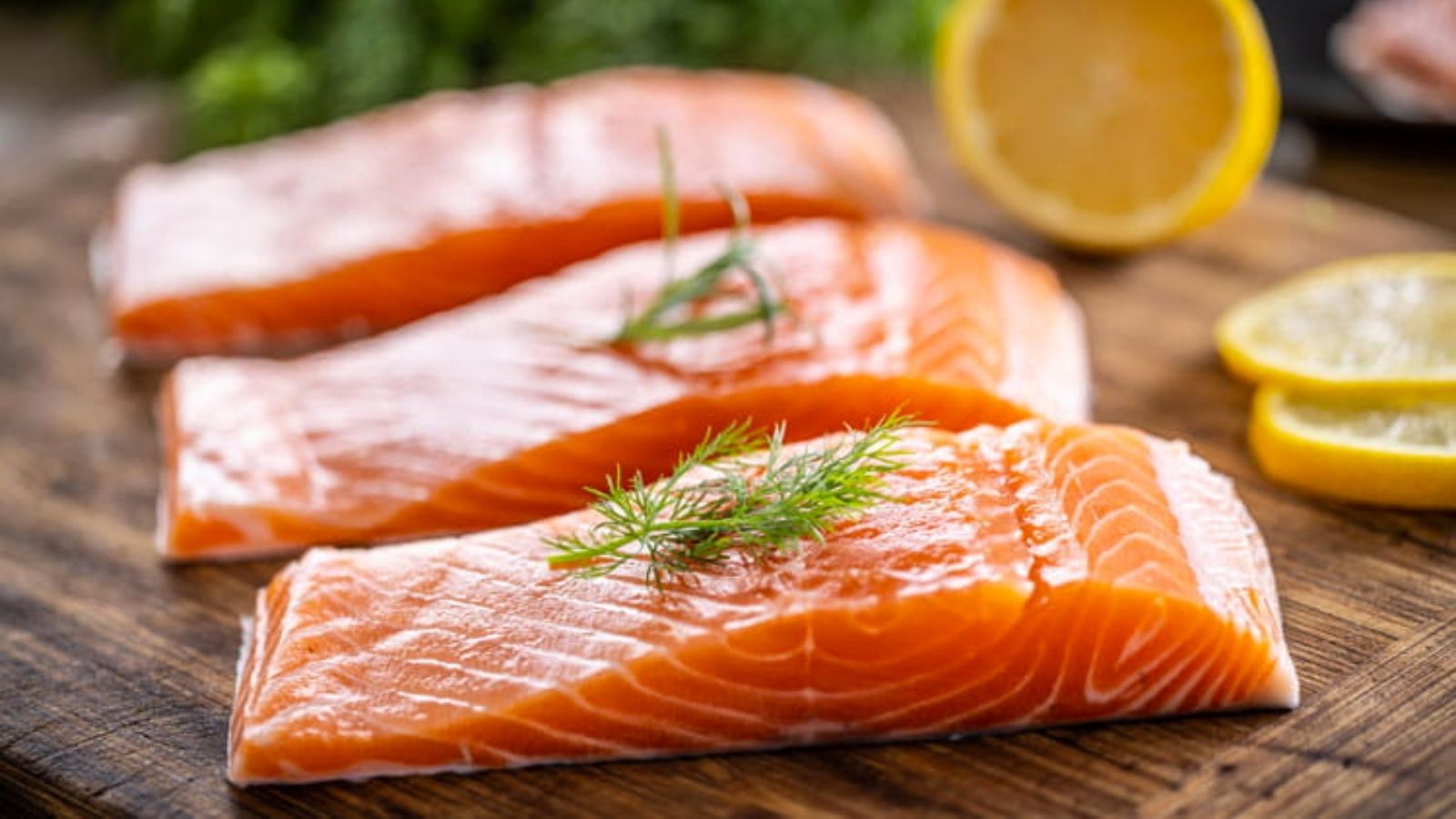
5. Large Meal Salads
Eating salads filled with a variety of cruciferous and non cruciferous vegetables and topped with sunflower seeds, salmon, or more can improve your hydration and boost your nutrient intake. Just be sure to mix your greens and include a hard-boiled egg, as eggs, raw spinach, and cabbage contain high levels of L-glutamine, a protein building block (amino acid) thought to help reduce alcohol cravings and improve muscle building. Eating at least one salad a day with a variety of ingredients can help you stay away from alcohol while replenishing your nutrient levels.

Specific Nutrients to Look Out For
While whole foods are crucial for addressing your dietary needs and providing nutritional support for recovering from alcoholism, it is often necessary to supplement a healthy diet so you can address the most critical nutrients. These minerals, vitamins, and supplements are the ones we recommend focusing on first.
Vitamin C
Vitamin C is found in most fruits and can help repair liver damage and increase glutathione levels. Glutathione is an antioxidant that accelerates liver repair, and vitamin C is essential for maintaining adequate levels. Eat plenty of fruits and vegetables, including citrus fruits, strawberries, bell peppers, tomatoes, and cruciferous vegetables, and consider taking a vitamin C supplement.
Milk Thistle
Milk thistle is essential for those with cirrhosis and alcohol-induced fatty liver. It can improve liver function and protect the liver from various toxins. While more research is needed to see if it can also aid those with cancer, some studies have noted its potential in this area. Milk thistle supplements are available in most pharmacies.
Cysteine and Glycine
Both cysteine and glycine are amino acids, which are the building blocks of proteins. By boosting levels of cysteine in your body, you can regain your strength and keep your body protected from certain illnesses. Whole grains, sunflower seeds, legumes, yogurt, and poultry are known to contain cysteine, or you can look for a supplement (more on this below).
Glycine is also used to create protein, helping you replenish your ability to strengthen your muscles. Most meats contain adequate levels of glycine, but it can also be found as a powder for supplementation. Adequate glycine levels can help you can feel fuller, stronger, and more nourished.
N-Acetyl Cysteine
N-acetyl cysteine (NAC) is the supplemental form of cysteine especially useful for boosting antioxidants in your body and improving brain function. Both are essential after long periods of alcohol consumption. Look for supplements containing NAC if you are having trouble consuming enough whole foods containing cysteine.
Glutamine
Glutamine should be the most abundant amino acid in the body, but you can experience glutamine depletion if you use alcohol heavily for an extended period of time and/or neglect proper nutrition during this time. Increasing your glutamine intake during early recovery can help you suppress your cravings while also keeping your nausea, vomiting, and diarrhea under control. Glutamine is also good for supporting proper gut health, so get plenty of meats, cheese like ricotta or cottage cheese, yogurt, milk, and cruciferous veggies like spinach and cabbage. Alternatively, look for a glutamine supplement.
Zinc
As previously mentioned, insufficient amounts of zinc can negatively impact your skin and appetite and can also reduce your sex drive. Zinc can help clear alcohol-related toxins from your body while also keeping your thyroid health in great shape. Consider a zinc supplement, or eat plenty of shellfish, beef and pork, oats, cashews, and chickpeas.
Other Effective Tips for Alcohol Recovery
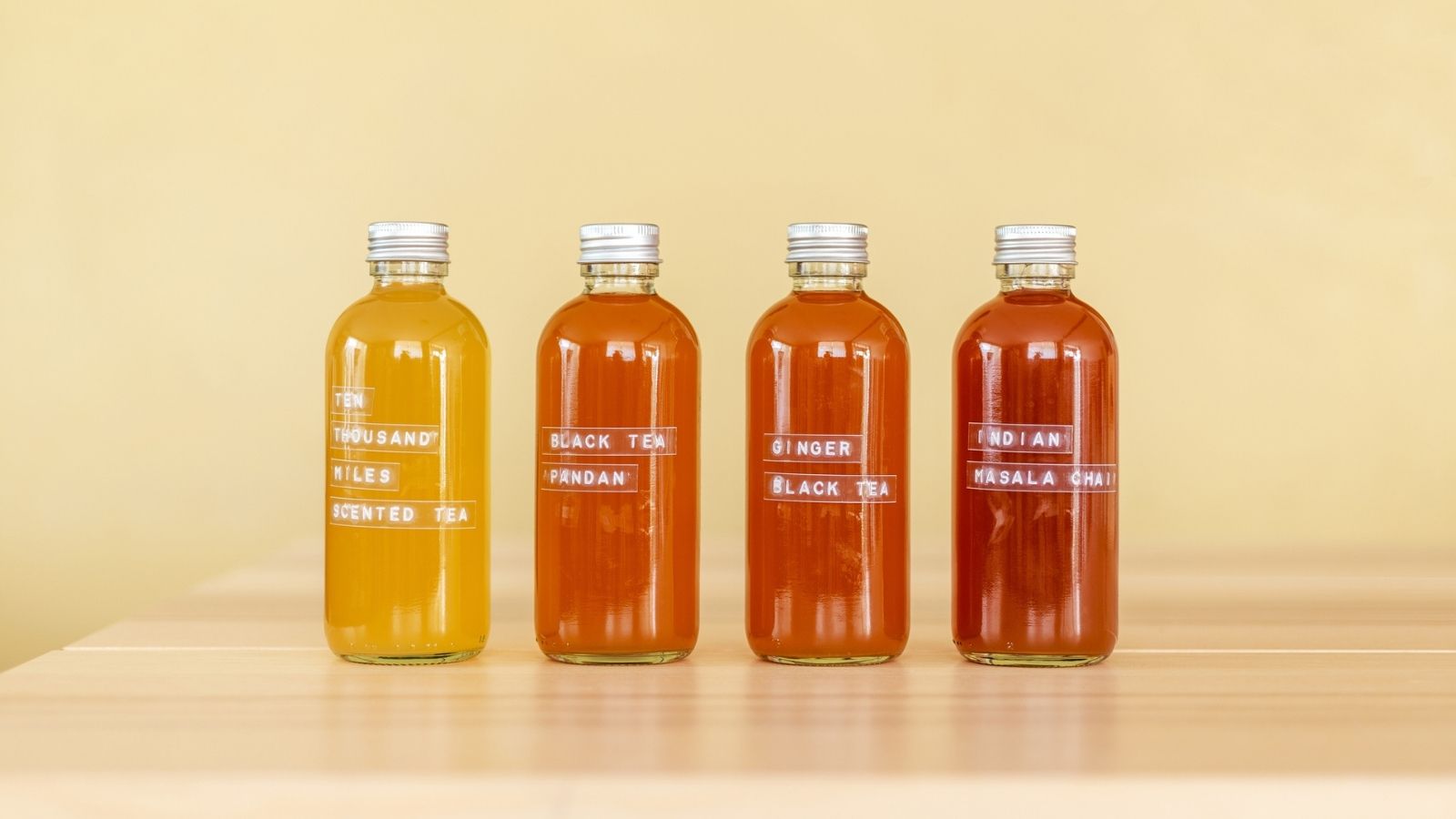
Now that you know several effective supplements and nourishing foods for alcohol rehab to choose from, it’s important to learn about the best ways to consume them. Here are some tips I’ve found effective for recovery:
Consider Intermittent or Periodic Fasting
One critical nutrition and recovery tip is to consider not only what you’re eating, but also how and when. Intermittent fasting means you’ll only eat one or two meals a day, restricting these meals to certain time periods. This can be an effective strategy to promote autophagy. Autophagy is a bodily process that helps clean up damaged proteins throughout your body and replaces them with healthy amino acids.
Periodic fasting, which consists of fasting for 24-hour periods a couple of times during each week, can mean autophagy occurs at around the 18-hour mark. Periodic fasting also speeds up the process of restoring amino acids. If this is a concern for you, consider periodic fasting if intermittent fasting isn’t helping you as quickly as you’d like.
Try Kombucha
Another strategy to consider is the use of kombucha tea to stand in and provide relaxation during times you’d normally desire alcohol. Kombucha is a fizzy, fermented tea created with yeast and bacteria cultures that can help you improve your gut health. While the fermentation creates a bit of alcohol in kombucha tea, it’s incredibly small, under 0.5%. It’s recommended to use tea that’s low in sugar and proceed with caution with any beer or wine stand-in.
Improve Your Recovery Journey Today

I know firsthand how difficult it can be to stay on the path toward recovery, especially when substances like alcohol have been an integral part of your daily routine. That’s what makes proper nutrition for alcohol recovery so crucial – by including these foods and nutrients in your diet, you can support your overall healing and begin addressing your physical and mental well-being. Use these tips, along with a consultation with your personal healthcare provider or dietician for more personalized guidance on this matter.
If you’re still considering seeking help for your alcohol use disorder, ECHO Recovery is here for you. Contact us to discuss recovery, find resources in your area, and learn more about how recovery can change your life. Cheers to a brighter and more hopeful future!
Resources:
- UC San Diego Health Services. (n.d.). Nutrition and Endurance.
https://studenthealth.ucsd.edu/resources/health-topics/alcohol-drugs/nutrition-endurance.html - National Institute on Alcohol Abuse and Alcoholism. (n.d.). Alcohol’s Effects on the Body.
https://www.niaaa.nih.gov/alcohols-effects-health/alcohols-effects-body - Johns Hopkins Medicine. (n.d.). Alcohol-Induced Liver Disease.
https://www.hopkinsmedicine.org/health/conditions-and-diseases/alcoholinduced-liver-disease - Stanford Health Care. (n.d.). Alcoholic Cirrhosis.
https://stanfordhealthcare.org/medical-conditions/liver-kidneys-and-urinary-system/alcoholic-cirrhosis.html - Healthline. (n.d.). N-acetylcysteine (NAC): Benefits, Side Effects and Uses.
https://www.healthline.com/nutrition/nac-benefits

Experienced Chief Executive Addiction Recovery and Mental Health Professional
Business professional in the Addiction Recovery and Mental Health industry for the past 26 years. Caring, compassionate and strongly motivated to make a difference in the organizations I am affiliated with and welfare of the population we serve. Currently focused on advocating, educating and developing projects leveraging evidence based, real time technology to support individuals in recovery.
